 |
2023 Annual Power of Community Report |
- Message from our Chief Executive Officer
- Year in review
- Building healthier communities, region by region
- Harnessing the power of collaboration
- 360° of member care
- Spotlight: Meet Dr. Demetria Malloy
- Deepening our roots in the community
- Advancing health equity, one step at a time
- Executive Leadership and Board
- Financials
- About CHPW
- Land Acknowledgment
- Download Report
2023
Annual
Power of Community
Report
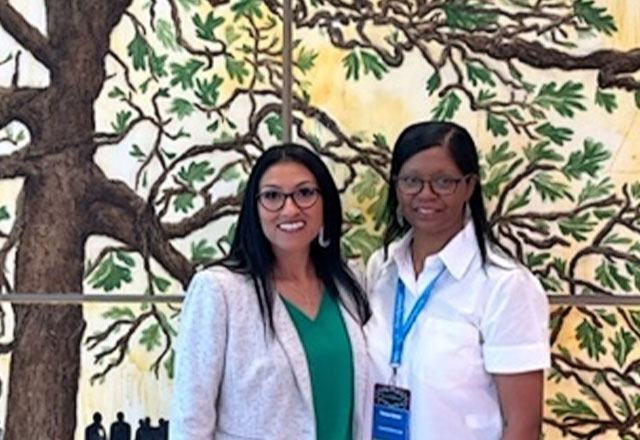 |
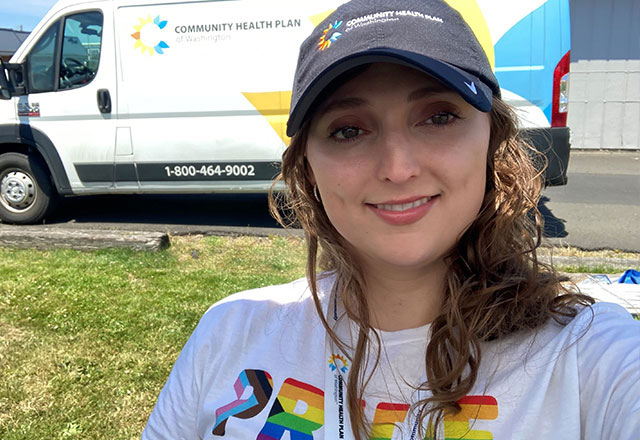 |
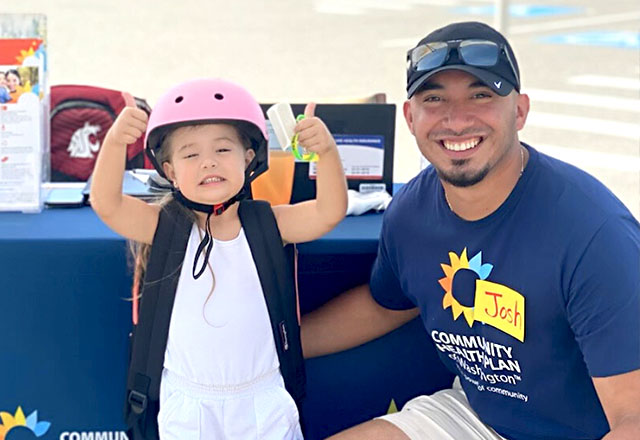 |

Message from our Chief Executive Officer
Dear friends and colleagues,
As I reflect on 2023, I am so proud and grateful for the collective efforts our staff and community partners have undertaken to improve the health of our members and our communities.
At Community Health Plan of Washington, our overarching strategy is unwavering: to be a leader in the pursuit of whole-person care and health equity. While I recognize that there is so much work ahead, I am continually motivated by the progress we see as we moved forward in our goals over the last year.
We strengthened our overall capacity as a not-for-profit health care organization by investing in our communities, in our partner Community Health Centers, and in our people.
We successfully attained NCQA Health Equity Accreditation, reinforcing our commitment to create equitable health care programs and processes. We established our first Member Advisory Councils to increase our members’ voices in our decision-making. And we strengthened our partnerships with policymakers, health care providers, community organizations, and other stakeholders to help improve the health of our members.
We do our work together in the midst of unsettling times — political divisions nationally, threats to freedom across the globe, and increased challenges to the stability of our institutions. These events affect us all directly and indirectly.
Yet, in the face of these uncertain times, we have remained certain of our purpose, identity, and mission. And every step of the way, we have relied on each of you for support. To all our partners and members — it is your energy, expertise, and heartfelt collaboration that fuel our progress. On behalf of all of us here, I wish to extend our sincere appreciation.
As we move forward, I know that we can continue to count on each other on the journey toward healthier communities. Together, we will champion whole-person care, advocate for equity, and build a healthier, more resilient community. In unity, there is strength.
With warmth and gratitude,
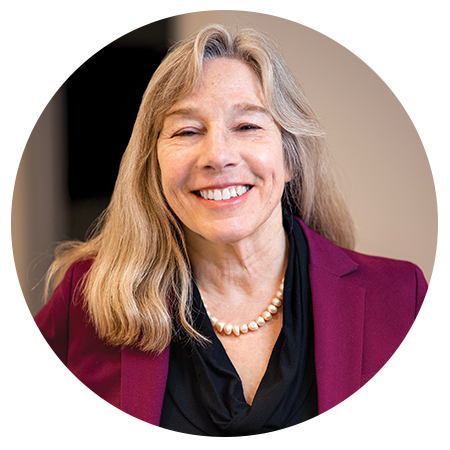
|
 Leanne Berge, Esq.
Leanne Berge, Esq.Chief Executive Officer Community Health Plan of Washington/ Community Health Network of Washington |
Year in review
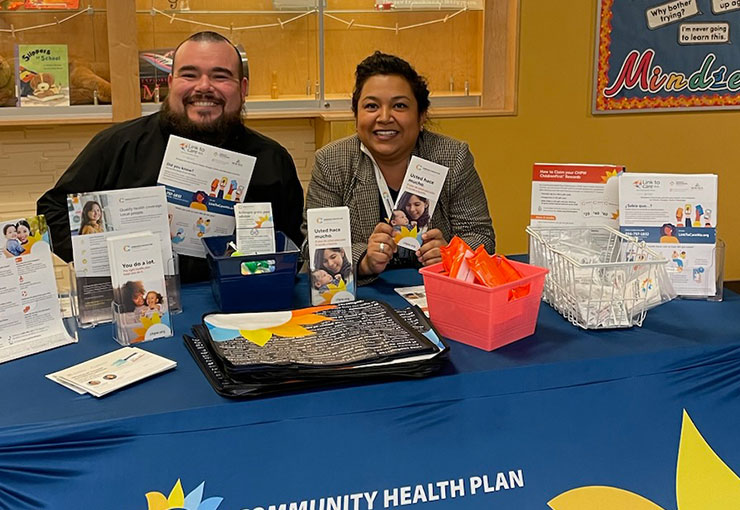
January
Health Care Authority (HCA) External Quality Review Organization report comparing quality performance across five Managed Care Organizations shows CHPW as top performer for second consecutive year.
January 26
Community Health Network of Washington (CHNW), parent of CHPW, receives $1 million state grant to launch the North Central Washington Digital Equity Initiative to bridge the digital divide in Chelan, Douglas, Grant, and Okanogan counties.
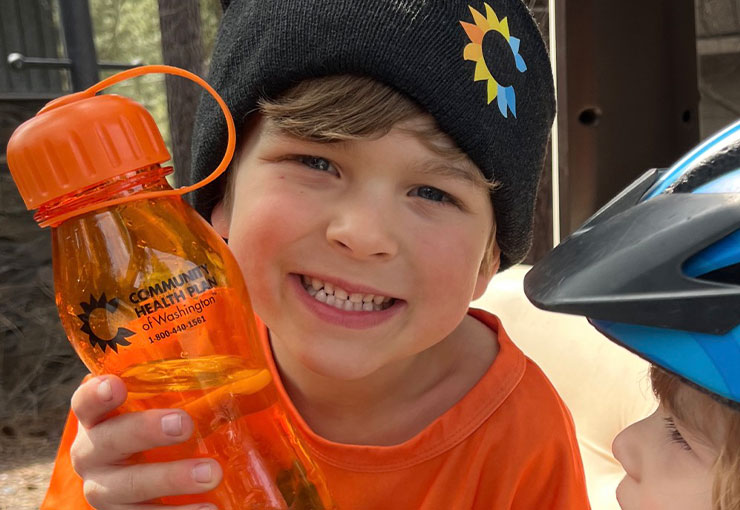
April 1
After a three-year pause due to the COVID pandemic, HCA resumes process of requiring Apple Health (Medicaid) recipients to prove eligibility each year.
May 10
CHPW hosts the first of five “Equity Townhalls” for staff, featuring expert guest speakers presenting on a variety of equity and anti-racism-related topics as CHPW continues its equity journey.
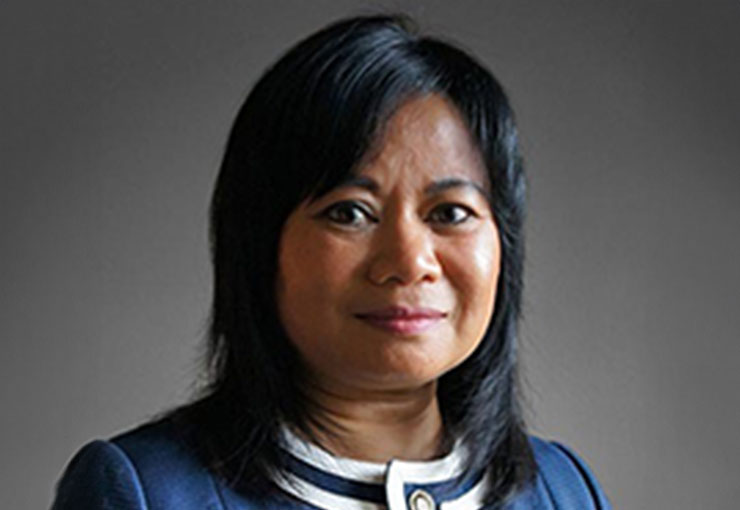
May 17
Connie Mom-Chhing, DM, MPA, CHPW’s Senior Director of Regional Systems Integration, is guest speaker on the National Alliance on Mental Illness “Hope Starts With Us” podcast.
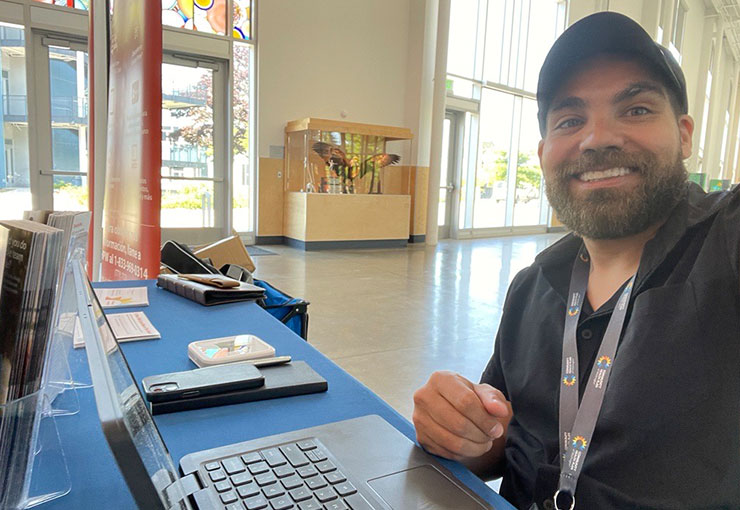
June 21
CHPW and CHC staff convene the first of three K-12 Health Innovation Learning Labs, a virtual learning series to explore innovations and best practices for integrating CHC health care services for youth and families in schools and across diverse communities.
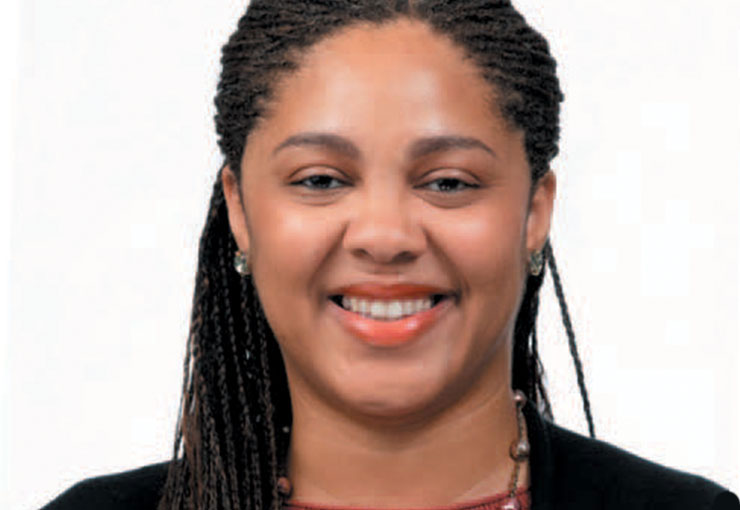
July 18
Demetria Malloy, MD, MSHS, is named CHPW’s new Chief Medical Officer/Chief Health Officer. She oversees CHPW’s Clinical Services Division, supporting the delivery of high-quality services for our members and communities.
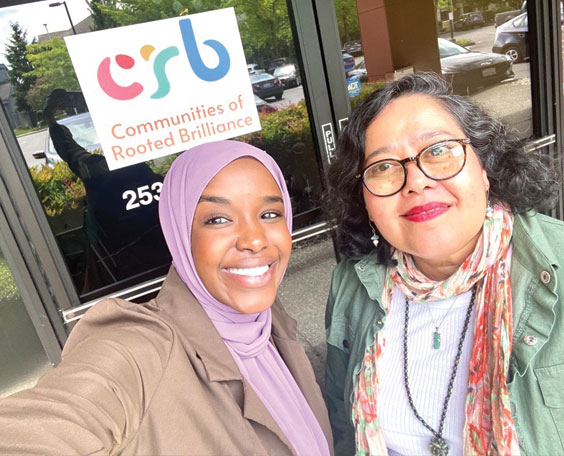
August
CHPW receives NCQA’s new and rigorous Health Equity Accreditation, providing an actionable framework for improving health equity.
August 23
Immigrant and Refugee Health Alliance, a group initially formed by CHNW/CHPW, hosts webinar for CHCs on preparing for new health care coverage opportunities for undocumented immigrants.
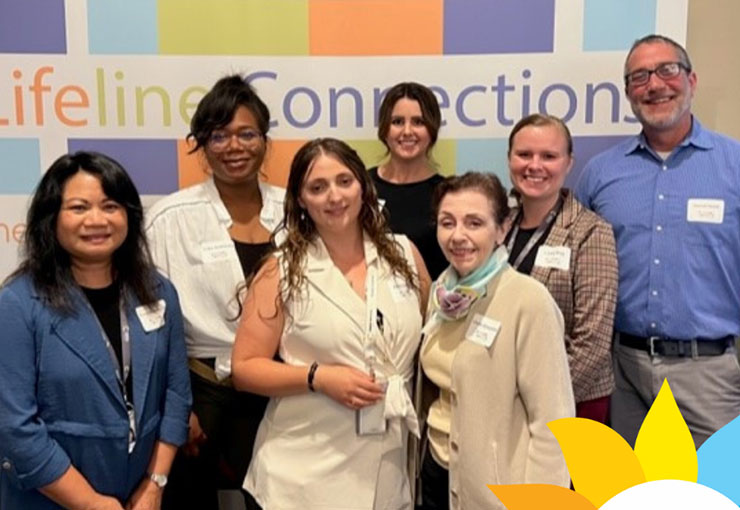
September 19
CHNW receives $3.8 million state grant for continued work with CHCs to improve access to digital navigation services — including smartphones, Wi-Fi, data service, and education.
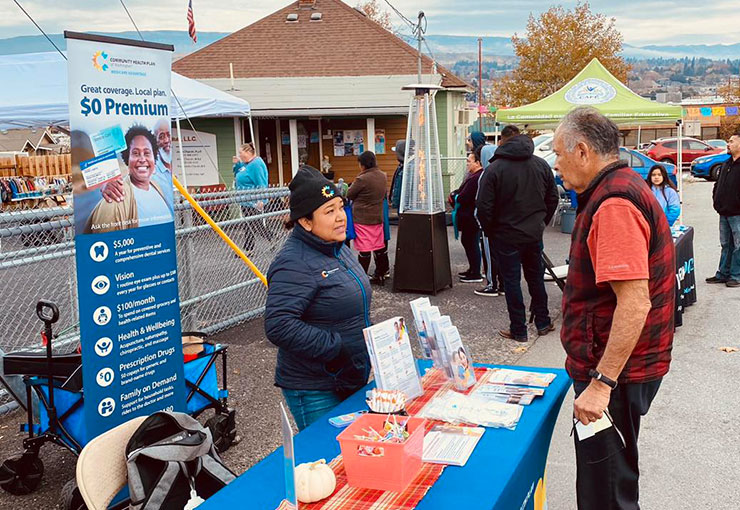
November 1
CHPW expands its Individual & Family Cascade Select plan offerings to five additional counties (Adams, Asotin, Clallam, Columbia, and Stevens) for 2024, for a total of 25 counties served.
November 2
CHPW donates $250,000 to support local community organizations in advancing health equity. With this year’s recipients, CHPW has provided a total of $980,000 to 68 community-based organizations across Washington State since 2020.
Building healthier communities, region by region
As a Washington-based not-for-profit managed care organization, we don’t just show up in our communities. We actively engage as connectors, advocates, partners, and leaders.
Our team of regional managers forge connections within the communities they work, live, and serve. They advocate for Apple Health (Medicaid) members and are liaisons between medical care providers, behavioral health specialists, care managers, caseworkers, and community-based organizations.
Integrating care
Beginning in 2016, the Washington State Health Care Authority (HCA) initiated a significant transformation, region by region, in the way care is delivered to Apple Health enrollees — those receiving low or no-cost health coverage due to limited income. This transformation aimed to integrate physical health and behavioral health (mental health and substance use disorder treatment) services, so that Apple Health members could get comprehensive care under one health plan. The underlying concept is that delivering “whole-person care” and coordination across different health services improves health outcomes.
CHPW was an early adopter of the whole-person care model, and today we offer Apple Health coverage in all 10 of the HCA’s “Integrated Managed Care” (IMC) regions encompassing all 39 counties in Washington. In each IMC region, we are represented by a manager who oversees administrative and operational services, bringing partners together to better deliver care for all aspects of a member’s health.
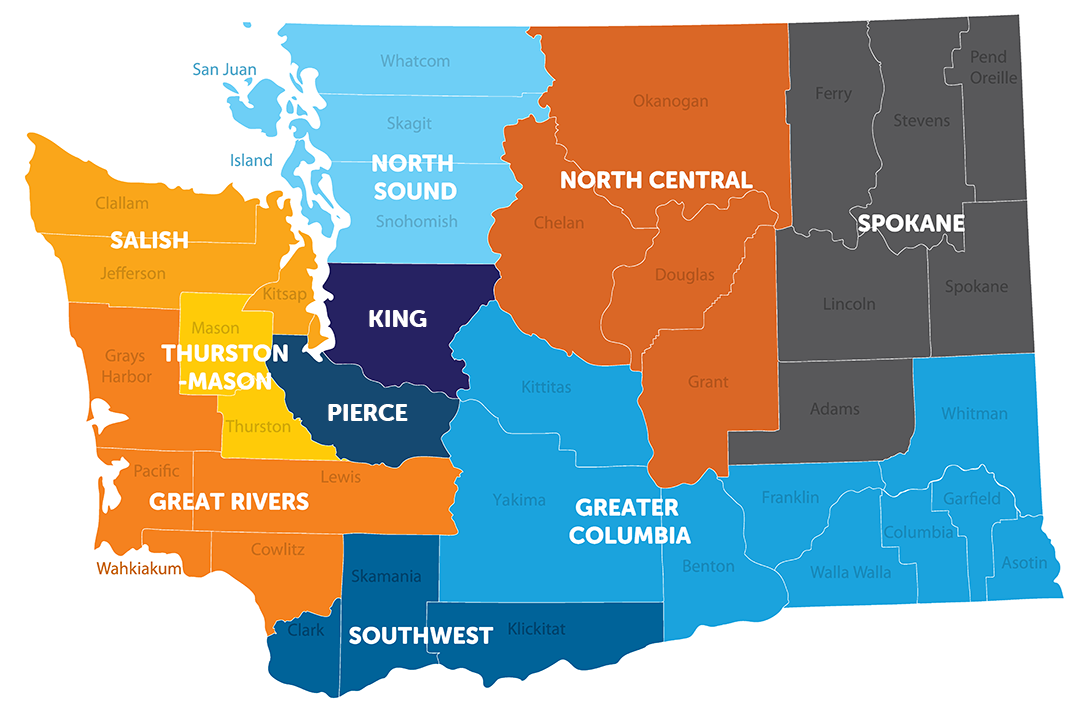
CHPW Regional Managers at Washington Behavioral Health Conference. ➤
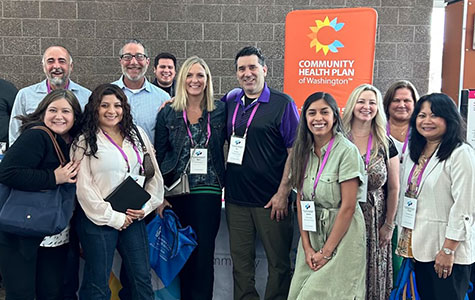
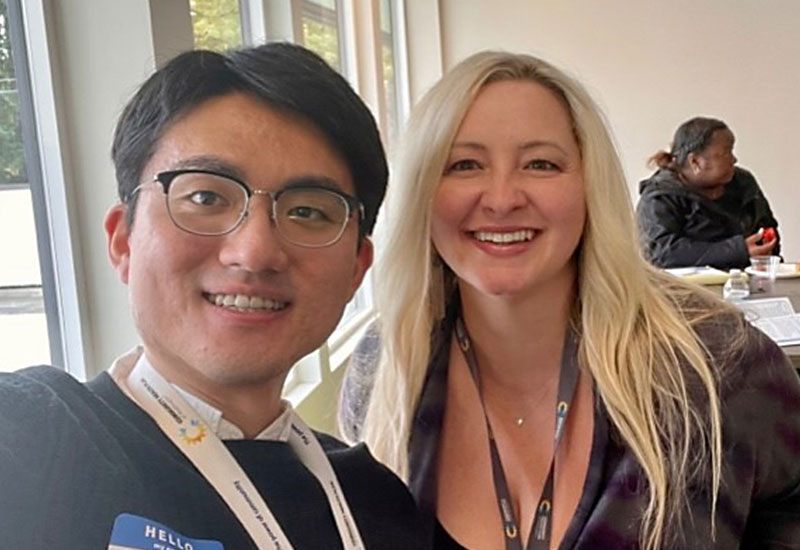
CHPW's Patrick Fu and Candace Hunsucker at Sea Mar Renacer open house.
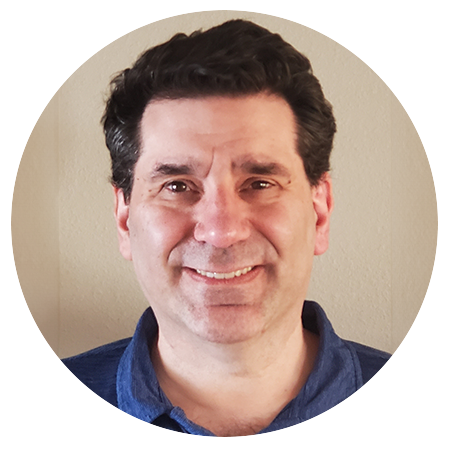
“Regional managers advocate for equitable access to resources, quality services, and opportunities. We amplify voices and push for positive change.”
- Joe Contris, CHPW Regional Manager for Pierce County
Network of support
“Regional managers act as catalysts and coordinators, bringing together diverse stakeholders — health care providers, community-based organizations, governmental agencies, and community members — to collaborate on shared goals,” said Joe Contris, CHPW’s Pierce County Regional Manager. “We advocate for equitable access to resources, quality services, and opportunities. We amplify voices and push for positive change.”
CHPW’s regional managers wear many hats. They build important relationships with local Community Health Centers, other health care providers, and community nonprofits to make sure whole-person care is being delivered effectively to Apple Health members and identify areas where quality of care can be improved. Regional managers serve on the boards of local health care organizations. And, they participate in an array of community events, from Tribal gatherings to health fairs, mobile clinics, and mental health workshops — all in the name of understanding communities better and identifying opportunities to connect support services.
“We regional managers are connected to different areas of the communities in a variety of ways. Community involvement is integral to our role,” said Gerardo Perez, CHPW’s Regional Manager for North Central Washington. His community participation includes being a member of the regional chapter of the National Alliance on Mental Illness (NAMI) and the Chelan-Douglas Coalition for Health Improvement.
The regional managers don’t work for applause; their reward lies in better health outcomes and healthier families and communities.
“Community is the foundation of integrated managed care,” said CHPW CEO Leanne Berge. “By fostering an interconnected, supportive community of medical care providers, behavioral health specialists, care managers, caseworkers, and community-based organizations, we can treat each of our members as a whole person and provide the services they need to achieve their best health outcomes. It’s important to create and sustain these relationships in every region we serve.”
Combating youth suicides: A community approach
Daniel Smith, CHPW’s Regional Manager for Southwest Washington, was alarmed about a sudden spate of suicides among young people in his area deep into the COVID-19 pandemic.
More than just a CHPW employee, Smith was also a community member. He conferred with community leaders, school officials, public health leaders, and others, and collectively they decided: Something must be done.
“Our community was at a breaking point. There was an urgent need to focus on the role we all could have in preventing youth suicides and to work toward ensuring that members of our community, young people and adults, never feel alone in their prevention efforts,” Smith recalled.
The result was the creation of the SW Youth Suicide Prevention Collaboration, supported by CHPW, community residents, families, schools, behavioral health professionals, and allied organizations.
Making a difference
The collaborative’s vision and mission was straightforward: Prevent youth suicides in Southwest Washington by convening community members who come into contact with youth and families and ensuring that anyone working on prevention would have support. That meant creating and/or supporting sustainable policies and programs for organizations that address youth suicide prevention, and sharing and supporting community-based programs targeting prevention.
The collaborative began enlisting the participation of schools, sports clubs, theater groups, and local businesses such as coffee shops and bike shops that are frequented by youth and their families.
“Together we have made a difference by connecting our community in new ways, enhancing relationships between organizations, and working alongside each other so that nobody has to feel alone in preventing youth suicides in Southwest Washington,” Smith said.
“Together we have made a difference by connecting our community in new ways, enhancing relationships between organizations, and working alongside each other so that nobody has to feel alone in preventing youth suicides in Southwest Washington.”
- Daniel Smith, CHPW Regional Manager for Southwest Washington
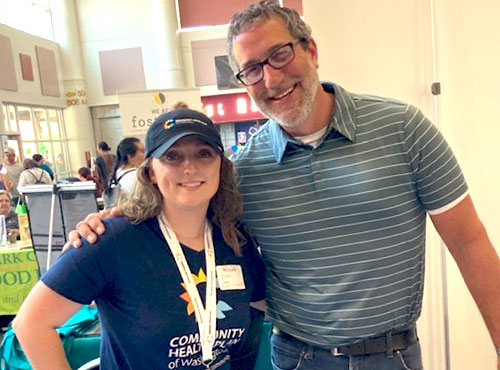
Katie Zoerb with Daniel Smith.
Expanding access to providers
As a Washington-based health plan, CHPW partners with local health centers and clinics to ensure that our members can receive care close to home.
We continually look for ways to add providers when needed in particular service areas, as well as support our existing providers and the breadth of services they offer.
In 2023, CHPW contracted with 74 new behavioral health providers and added 178 newly contracted providers/groups. We also contracted with all major hospital systems for our Individual & Family Cascade Select line of business for plan year 2024.
Our Provider Relations team also introduced two new training programs on "Clinical Data Repository" and "Appointment and After-Hours Access Standards" for our network providers.
Access to specialty care
In addition to primary care and behavioral health care, we also helped our network of Community Health Centers boost access to specialty care.
We strengthened our collaboration with MAVEN (Medical Alumni Volunteer Expert Network) Project to bolster care in community health clinics. Through MAVEN, CHC providers connect with volunteer specialist physicians via telehealth for consultations, mentoring, and education. This helps our members avoid referrals to specialists, which can require additional time and scheduling for appointments.
From 2021 to 2023, CHCs utilized over 7,000 specialty e-consults from the MAVEN Project, with dermatology, endocrinology, and hematology being the most requested specialties. CHC providers also received nearly 1,000 education and mentoring sessions. Through the MAVEN-CHC partnerships, we helped broaden access to specialty care for traditionally underserved populations.
Based on feedback from the CHCs, we added ConferMED to our provider network to expand access and choice. Through ConferMED, CHC primary care providers can seamlessly communicate and rapidly exchange information with 300-plus medical specialists.
In 2023, two CHCs, CHAS Health and Yakima Valley Farm Workers Clinic (YVFWC), utilized ConferMED services. Both CHCs noted the quick turnaround time for eConsults through ConferMED, and CHAS Health reported that using ConferMED resulted in a remarkable 75% reduction in in-person patient referrals to specialists.

Harnessing the power of collaboration
CHPW engages with a diverse network of leading health care providers, institutions, government agencies, and community organizations in exploring ways to better deliver care to traditionally underserved populations. By partnering with these entities, we leverage their specialized expertise and skills to help improve health outcomes for members.
Health before and after birth
In 2023, our staff were part of several collaborative initiatives targeted at improving access to care for pregnant and parenting individuals on Apple Health (Medicaid).
Dr. Terry Lee, Senior Behavioral Health Medical Director, and Tara Sol, Senior Case Manager, along with staff from Community Health of Central Washington, Sea Mar Community Health Centers, Neighborcare Health, and the Washington State Health Care Authority (HCA), participated in the Medicaid and Perinatal Mental Health (MPMH) Project, led by the University of Washington’s Perinatal Mental Health & Substance Use Education, Research & Clinical Consultation Center.
Among the project’s goals: Ensure that birth parents with perinatal behavioral health concerns receive the support and care they need before, during, and after birth.
Perinatal mental health and substance use disorders are the leading cause of maternal mortality. Yet, most people with such concerns go unrecognized and untreated, Lee said.
Additionally, CHPW’s Maternal Child Health team, comprised of case managers and clinical care coordinators, collaborated with the Washington State Department of Health and local health jurisdictions to better monitor CHPW members with elevated blood lead levels and ensure they were getting appropriate care and follow-up blood tests.
And, CHPW staff were also part of the Institute for Medicaid Innovation’s Midwifery Learning Collaborative with the HCA, working to inform and educate Apple Health members about the options and benefits of midwifery care.

➤My Tran at International Community Health Services (ICHS) baby shower

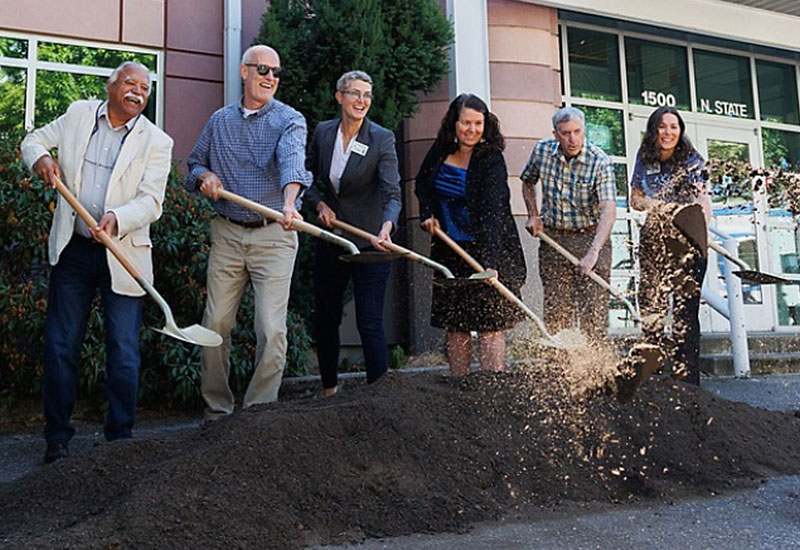
Unity Care NW breaking ground on the Way Station.
Strength in partnerships
Among other notable collaborative work:
The Way Station: With the support of a CHPW grant, Unity Care NW, Opportunity Council, PeaceHealth, and the Whatcom County Health Department joined forces to establish The Way Station. This new facility aims to provide a comprehensive range of services for individuals experiencing homelessness in Whatcom County.
Housing: CHNW/CHPW staff collaborated with the Washington State Department of Commerce Office of Apple Health and Homes to develop a learning series and toolkit to guide CHCs in forming partnerships with housing developers and operators. The goal is to address housing insecurity and homelessness.
Medication for Opioid Use Disorder Learning Collaborative: CHPW co-hosted this collaborative initiative with the nonprofit health care consulting firm Comagine. Dr. LuAnn Chen, CHPW Senior Medical Director, and Tawnya Christiansen, Behavioral Health Medical Director, participated in this effort.
Patient safety: Dr. Chen also contributed to the Washington Patient Safety Coalition. As part of the Health Equity and Stigma and Bias Workgroup, she facilitated a provider “Safe Table” discussion focused on addressing racism within the health care system.
These collaborative efforts extended well beyond traditional medicine. They demonstrated our commitment to advancing health equity, improving care delivery, and fostering meaningful partnerships within the health care community.
360° of member care
In 2023, we approached integrated care from every angle. Focused on providing accessible and equitable care for members that address the social drivers of health, teams across the organization carried out initiatives to improve access to quality care: in-person in the communities where we live, through the clinics and organizations we partner with, and virtually from wherever and whenever care was needed.
Bringing it home
CHPW’s Community Support Services team completed the transition of our Community Health Worker (CHW) services from an outside agency to a fully “in-house” program, including nearly doubling the size of our member-facing team. By bringing this work home, we can provide consistent person-to-person contact for our members and meet them where they live. And, our regionally-based staff know the local resources to best help members access the support they need — from scheduling and finding transportation to doctor’s appointments to accessing groceries and other social services.
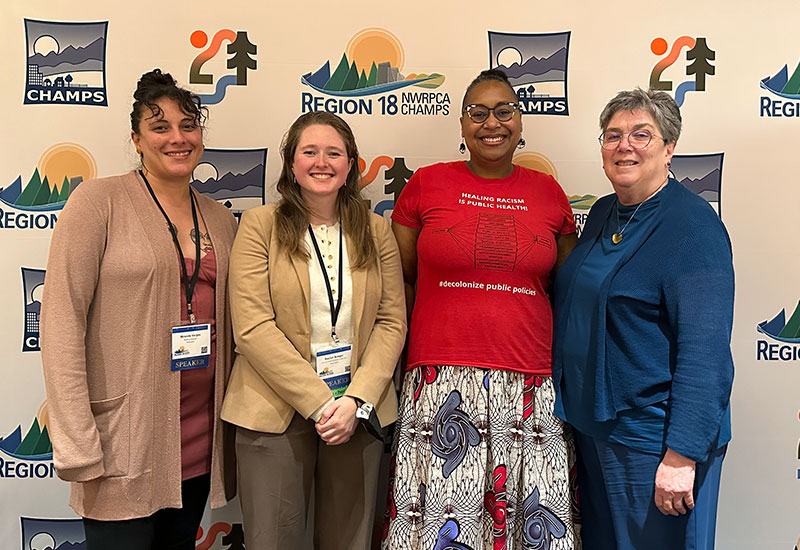
➤Miranda Vargas, Rachel Briegel, Kevonya Elzia, and Rhonda Hauff attending a presentation at the Northwest Regional Primary Care Association.
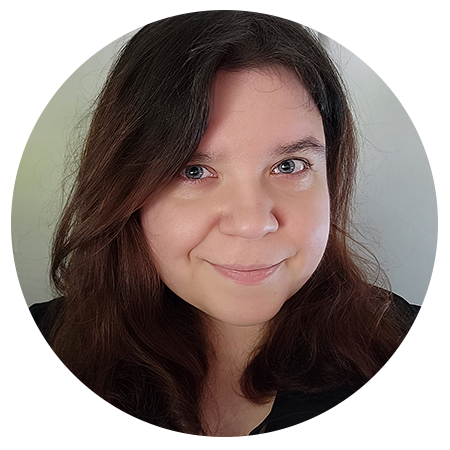
Community Support Services manager Sara Warner, leading the charge in the CHW expansion, reflects on an unforgettable moment during the chill of winter: “Toward the end of last year [2023], we connected a member with housing and food, and had their utilities turned back on after two weeks of having no heat in their home during one of the longest cold snaps of the year. Afterwards, the member told my team, ‘I didn’t know that my insurance company could do all of this! I can finally sleep!’ This member’s story really sticks out. They were so appreciative of the assistance of our staff, finally able to rest in their home after only sleeping one to two hours a night for two whole weeks without heat!”
- Sara Warner, CHPW Community Support Services Manager
| We partnered with all 21 clinics to reengage members with chronic conditions | |
| 100% | Participation rate in Chronic Condition Review Program |
| 73% | Member engagement rate achieved |
Collaborating with clinics
The Clinic Partnerships team, led by Kristen Stagner, Manager of Clinic Partnerships and Data Integration, and Jennifer Polello, Senior Director of Quality and Population Health, began work at the start of 2023 to provide support to our network of Community Health Centers in addressing gaps in chronic condition management. The team assisted CHCs in reengaging members with complex chronic conditions who had lapsed in receiving primary care services.
The Clinic Partnerships team worked closely with CHCs to uniquely support the needs of each, providing actionable data and recommendations for reaching these patients, aligned with each CHC’s available resources in a sustainable workflow. 2023 returned positive results.
The June launch of the team’s Chronic Condition review program of both Medicare and Medicaid members showed all 21 CHCs in our network with a 100% participation rate and a 73% patient engagement rate. Jennifer reported, “I’m very excited about the creation of the Clinic Partnerships team that is dedicated to partnering with our CHCs to provide continued support for optimal patient outcomes. We look forward to continuing to collaborate with CHC staff to tie quality improvement efforts into projects focused on optimizing chronic condition management.”
Expanding behavioral health access with telehealth
Access to health services quickly pivoted to virtual or telehealth during the height of the COVID pandemic’s Public Health Emergency (PHE). Telehealth manager Sarah Koca explained, “After accelerated growth across telehealth from 2020-2022, sustainability came into question when the PHE officially ended in May 2023. Despite some challenges, the PHE demonstrated the value of providing telehealth for behavioral health services.”
Sarah’s team leveraged telehealth learnings during the PHE to address subsequent impacts on members' access to behavioral health services. They grew CHPW's tele-behavioral health services with Boulder Care and Charlie Health to help meet the increasing need for these services even with industry staffing shortages.
2023 successes include well above average retention in Boulder Care, offering telehealth addiction treatment and medication-based substance use disorder treatment. Boulder Care retained 61% of CHPW members for more than six months — compared to the industry average of 29% — while also growing usage among our members by 12%. Additionally, Charlie Health, an intensive mental health outpatient services provider for for teens and young adults, grew member usage by 117%.
By supporting these programs through the challenging transitions of 2023, we confirmed telehealth improves access to quality, integral care post-pandemic, and that our members both use and benefit from it.
"After accelerated growth across telehealth from 2020-2022, sustainability came into question when the Public Health Emergency (PHE) was officially declared over in May 2023. Despite challenges, the PHE demonstrated the value of providing telehealth for behavioral health services."
- Sarah Koca, Telehealth Manager
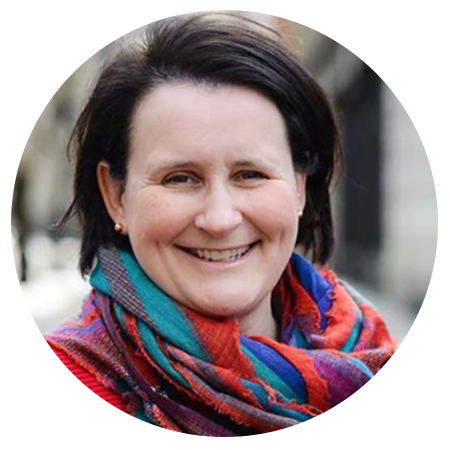

Advancing health and housing partnerships
Acknowledging the great impact a lack of stable housing has on overall health, CHPW/CHNW have a shared strategy to address this critical social determinant of health (SDOH). We continued our efforts to integrate health and housing supports as a key component of caring for our members and the broader Washington State communities.
Led by Rachel Briegel, Housing Program Manager, CHPW hosted a Health & Housing Learning Collaborative of 10 Community Health Centers and housing partners, and finalized a Health & Housing Partnerships Toolkit for Washington State, made possible through a grant from the Commerce Office of Apple Health and Homes.
The toolkit offers resources specific to Washington, highlights successes of local CHCs, and was created for community organizations seeking to build partnerships, apply for funding opportunities, and gain an understanding of Washington’s health and housing systems.
The team aimed to also support capacity development, specifically for increasing the number of organizations offering medical respite care for people experiencing homelessness. In 2023 we met an important milestone in this work, establishing a contract with Catholic Charities Eastern Washington “House of Charity” in Spokane, adding to two others with Yakima Neighborhood Health Services and Harborview’s Edward Thomas House.
Amplifying member voices
Closing the circle, Member Advisory Councils (MACs), directed by Fathiya Abdi, DEI Program Manager, and Abha Puri, Member Experience Program Manager, launched in 2023 in partnership with the Center to Advance Consumer Partnership (CACP).
The Councils are intended to create a stronger member engagement program and improve our member experience, offering the opportunity for members to share how we can best support them and their health needs. The Councils aim to be highly integrated into CHPW’s existing governance structures and to provide input and recommendations to CHPW’s quality, population health, and member engagement strategies, programs, and processes.
CHPW’s goal is to amplify the voices of members who are historically excluded from health care’s institutional decisionmakers and yet, are those most often impacted by health inequities. In 2023, two initial Councils were created, laying the foundation to create scalable systems and processes that will support this important initiative as it expands in coming years.
“The purpose of our MACs is to help us continue to integrate the member voice into the development of programs and processes, CHPW's governance structure, and decision-making procedures. The focus of our work in 2023 was to lay the foundation and build the cross-departmental infrastructure for this member engagement work to be successful in the long term,” said Puri.
2023 marked another year of meeting members where they are and providing the quality care that everyone deserves.

“The focus of our work in 2023 was to lay the foundation and build the cross-departmental infrastructure for this member engagement work to be successful in the long term.”
- Abha Puri, CHPW Member Experience Program Manager
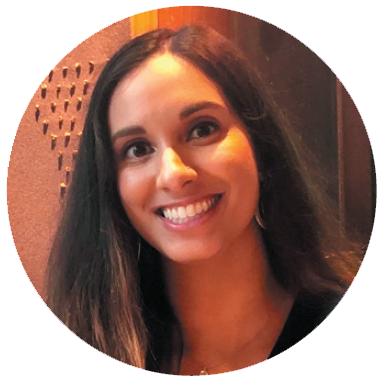
Spotlight: Meet Dr. Demetria Malloy
Demetria Malloy, MD, MSHS, joined CHPW in July as the organization’s new Chief Medical Officer/Chief Health Officer. She previously was a Regional Vice President Medical Director for Elevance Health (formerly Anthem) as well as their Plan Performance Medical Director for California. She also served as Medical Director for L.A. Care Health Plan, a Medicaid managed care plan serving Los Angeles County. Among her many accomplishments, Dr. Malloy has been formally recognized and published in journals for her work on health equity.
Dr. Malloy oversees CHPW’s Clinical Services Division, which includes Utilization Management, Care Management, Pharmacy, Behavioral Health and physical health Medical Director teams, Quality, and Clinical Performance Management, in supporting the delivery of high-quality services for our members and communities.
Here, Dr. Malloy answers a few questions, allowing us to gain a deeper understanding of her role and her insights into health care.
How has your experience prepared you for your new role at CHPW?
CHPW and I are a great match as this organization presents an amazing environment and opportunity to pull my skillsets and passions from my previous leadership positions together in order to contribute to the already great team here. I appreciate that it is a mission-driven organization that works across the spectrum of benefits and services under Medicaid, Medicare, and commercial plans. I enjoy optimizing services and health care access, and have had leadership roles in all of those contexts.
My medical training and the post-clinical fellowship training focused on health policy and disparities research and interventions really cemented my passion for serving marginalized and vulnerable populations. It led me to think through how to help these populations in the space of health services and health care delivery.
Your title includes both Chief Medical Officer and Chief Health Officer. Explain the significance of “Health” in your title.
When you think of the traditional role of a Chief Medical Officer, particularly for a health plan, you think a lot about medical management services. By adding the title of Chief Health Officer, it makes clear that we are intentionally taking into account the many other factors that affect health aside from just medical services.
We’re considering the social drivers of health, how we set up our models of care, and our quality metrics and how we go about achieving them, especially by addressing health equity.
Why is the pursuit of health equity important to CHPW as a health plan?
No health plan can really deliver on the promises and the things that they are accountable for without asking, ‘Does everyone have a fair shot at achieving good health?’
We do the work that strives for our members to be healthy. But that looks different for different members. We need to consider that wide spectrum of possible needs and customize our solutions so that all people really do have access to and participation in those areas that help them live their healthiest lives. We won't be able to deliver on our promise and obligations fully unless we consider health equity at our core.
Can you speak to a major challenge and a major opportunity you look forward to at CHPW?
The two are related. The opportunity I see is for us to be able to grow in our breadth of reach and suite of solutions that we offer to members to give them the best chances to have the best health possible. I think the challenge then is addressing all the barriers that are in the way, whether they are systemic in health care delivery or in the social needs our members have.
Outside of work, what are some of your passions in life?
I have a bit of an adventurous streak. I like to travel and experience new things, including different foods and cuisines. (Favorite destination so far: Japan). I’m kind of a foodie, and I love the way that food ties into different cultures.
I also really love music and dance of all kinds and the cultural traditions that are associated with them from everywhere around the world. Other core things for me are spending time with family and friends giving back to the community. Philanthropy is big for me.
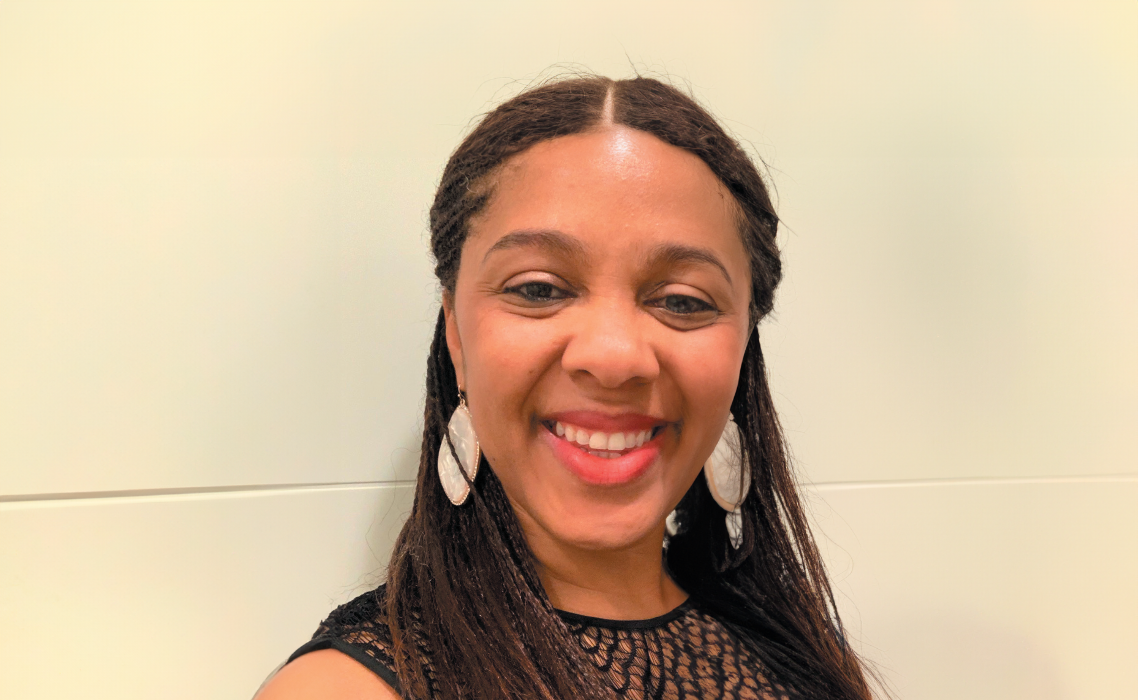
Demetria Malloy, MD, MSHS
Deepening our roots in the communities we serve

➤CHPW sales team.
CHPW’s outreach and enrollment staff of account managers live and work throughout Washington. They connect and engage with members and prospective members daily, showing up for the organizations that our members trust and rely on. They provide health plan information and resources, with awareness and respect for the varying needs, challenges, and values that exist from person to person.
Partnerships with community-based organizations (CBOs) help CHPW work toward a more equitable health care system, providing members with vital health-related resources in the places that are local and familiar. Here we highlight a few of those connections that Account Managers Josh, Ella, and Sandra made in 2023.
Connecting health and education
Before joining CHPW in the summer of 2022, Josh Guajardo worked as a Case Manager with Educational Service District (ESD) 123, which supports 23 school districts in seven counties across Southeastern Washington. It is one of nine ESDs in Washington that provide a central point for aggregating services, information, and resources to support local school districts in ensuring equal educational opportunities for students and connecting schools with various state and federal agencies.
In 2023, as an Account Manager with CHPW, Josh realized a need existed between school districts and the health care system - there was a missing link between families receiving clinic referrals from schools and accessing care at a clinic. He then became that link – a resource to help families experiencing barriers to education due to health care needs and improving access to health care in the region, with the support of ESD 123.
Josh explained, “There has been a big impact in what we've accomplished with ESD 123 and the partnerships they've helped us build with different school districts, migrant programs, and administrators for varying schools. It has been successful not only in outreach we have been able to do with families directly to help connect them to care, but also in educating trusted community partners who families look to for guidance. We’ve been able to help more families with the support of ESD 123 than we would have otherwise.”
Josh also initiated efforts to replicate this work with ESD 123 elsewhere in the state. Cultivating new relationships with ESD 105 in Yakima and ESD 109 in Anacortes, he began working with other CHPW staff to create similar partnerships with the ESD in their regions to help link more families to health care.
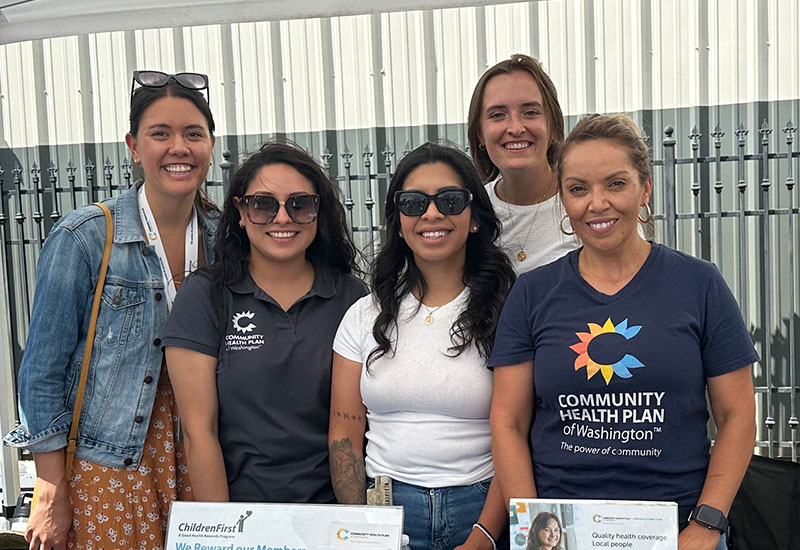
➤Danica Koos, Alma Castillo, Rocio Ramos, Thalia Cronin, and Brisa Guajardo at a community event at YNHS.
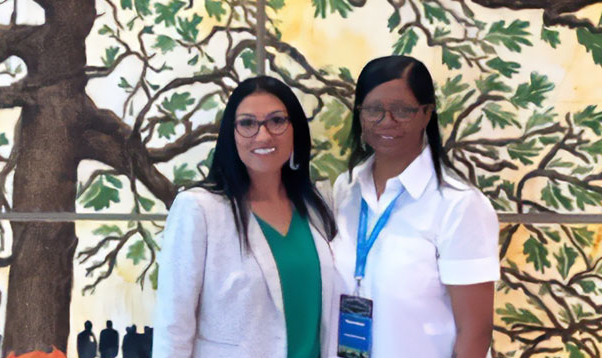
Rhonda Beaver and Theresa Hattori touring Council Oak Comprehensive Healthcare Hospital.➤
Making a difference daily
Josh reflected on a family he helped get health insurance for their child. The family was connected to Josh through ESD 123’s Migrant Education Program that supports continuous education for kids whose families move often for work. The family had just relocated to Washington and were attempting to enroll their son in school, but were not able to because he didn’t have the required vaccines. When registering at the school, the parents indicated they work in agriculture, and were then connected to the program. The parents hadn’t established immigration status yet and primarily spoke Spanish.
When Josh first called to see how he could help, the boy answered the phone and talked with him. Josh continued reaching out until the parents finally agreed to chat with him. The parents were relieved that Josh also spoke Spanish.
“At first, they had a lot of questions about school, and since I have kids of my own, I could really help them out. I continued to call each week and offer help where I could, and eventually, we came to the idea of health insurance. Like many families, they feared public charge and deportation and just weren’t aware of their options.” Josh provided the information they needed to understand how they could safely get care and how their son could also get health insurance. After Josh helped the family enroll the young boy in Apple Health for Kids, the child was able to get the vaccines needed to start school. “Whether it’s two families I help in a day or 200, every opportunity to help improve access to health care counts,” Josh said.
“Whether it’s two families I help in a day or 200, every opportunity to help improve access to health care counts.”
- Josh Guajardo, CHPW Account Manager
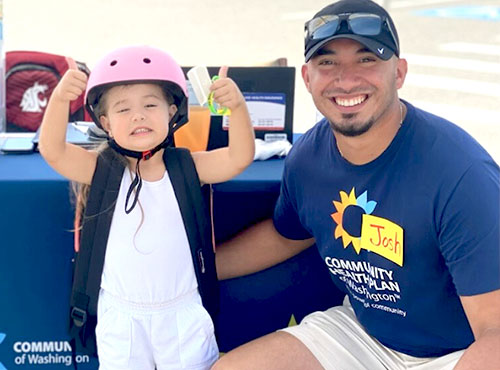
Josh Guajardo at a community back-to-school event.
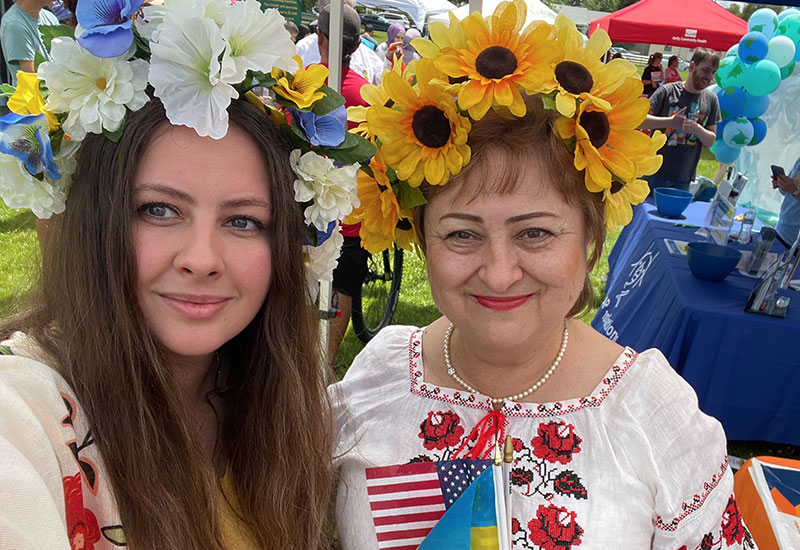
Ella Kotelovich and a community member at World Refugee Day in Spokane.
Building trust and simplifying health care
Ella Kotelovich has been an Account Manager with CHPW since 2021, establishing connections with multiple organizations across Spokane – largely those supporting immigrant and refugee populations.
In late 2022, she was invited to visit a new organization, the Thrive International Center. Thrive provides resources for immigrants and refugees, starting with housing and then wrapping around all the resources they might need, including empowerment programs for women and youth. Shortly after opening in mid-2022, the organization became a resource center for the Slavic community, supporting Ukrainian and Russian-speaking refugees coming to the state after the start of the Russian-Ukrainian war. In 2023, Thrive was also able to serve Afghan, Belarusian, Congolese, Syrian, Sudanese, and Venezuelan families through their housing program. In fact, Thrive helped more than 2,000 refugees and provided transitional housing for 419 families.
Aside from directly providing resources, the organization hosts tea parties for women, youth soccer camps, and crafts and games events for kids. They also partner with the Manzanita House, which provides legal aid to immigrants, and CHAS Health, a Spokane-based Community Health Center. Every week, Ella visited Thrive to provide health resources and answer questions. She also attended tea parties and other events, building relationships with the community and making herself available to answer health care questions.
"Health insurance is one of the first things people need when they come to a new country. And for many, the health care system here is completely new. I help them understand what it is and how it can help them. I speak Russian and understand Ukrainian, and many Slavic people also speak Russian, so I can help explain the nuances of health insurance and answer questions. The Slavic community in Spokane has come to know they can find me at Thrive, and I am available to help them every Wednesday."
Ella also participated in baby shower events with World Relief in Spokane, cultivated a strong relationship with the Manzanita House, and actively contributed toresource events hosted by the International Rescue Committee, and Refugee and Immigrant Connections Spokane.
Nurturing valued relationships
With an education in Health Care Administration and Management from the University of Washinton and 10 years of experience in health care and patient engagement, Sandra Romero began at CHPW as an Account Manager in April 2022. She started engaging with El Centro de la Raza in 2023. Formed in the late ‘70s and translated to "The Center for People of All Races," El Centro de la Raza is open to everyone, though it largely connects the Latino/a community in Seattle and South King County with resources, including legal support and housing assistance.
Throughout 2023, Sandra focused on strengthening relationships, connecting with coordinators at the organization, and getting to know the many programs offered through El Centro. She attended their cultural events like the Cinco de Mayo celebration, and their food bank and free legal clinics.
Sandra shared, "Whenever I go to El Centro, everyone is so appreciative that someone is there to help. I value the relationships I'm building there and the impact we can make together in the community. I speak Spanish, so for me, being able to communicate with families who otherwise may run into language barriers and supporting them in getting access to health care means a lot." Sandra is looking forward to growing her relationship with El Centro and getting involved with more of the programs they offer to help more families better access the support and care they need.
Aside from her work with El Centro, Sandra was involved with dozens of other organizations throughout King County, including the International Rescue Community (IRC), Recovery Café, and shelters and food banks. In 2023, she attended over 200 events where she could connect with community members and provide health information.
Outside of her work as an Account Manager, Sandra donated her own resources to community organizations like the North Helpline Food Bank. After learning there was a need for feminine hygiene products and diapers, and compelled to help, she regularly purchased and dropped off goods to the organization, fostering relationships in the process.
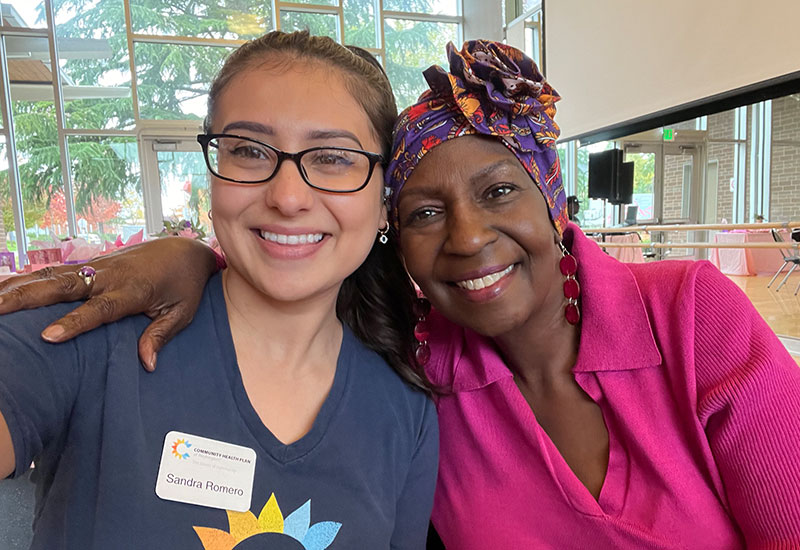
Sandra Romero and Bridgette Hempstead at World Mammography Day screening event.
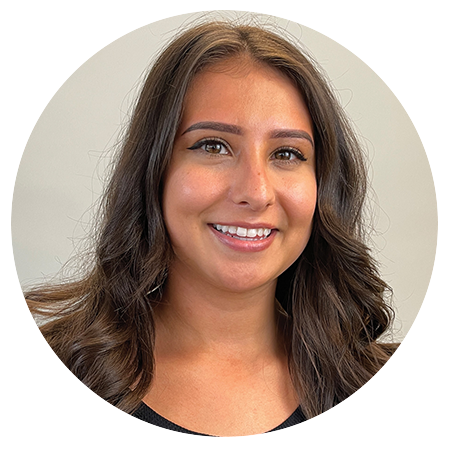
“I speak Spanish, and being able to communicate with families who otherwise may run into language barriers and supporting them in getting access to health care means a lot.”
- Sandra Romero, CHPW Account Manager
Advancing health equity, one step at a time
As a health plan built by Community Health Centers (CHCs) to improve the health of their patients and communities, we have always been passionately committed to advancing health equity. Our ongoing efforts in 2023 reflect our dedication to creating a more just and inclusive health care system so that all people, regardless of background or circumstances, can live their healthiest lives.
CHPW, our parent organization Community Health Network of Washington and its network of CHCs, and the Washington State Health Care Authority (HCA) entered the third year of the Equity Learning Collaborative Program, exploring ways to transform care by addressing health disparities.
As part of the program, CHPW provided each participating CHC up to $50,000 in up-front capacity building funds each year to support projects aimed at closing health disparities based on their specific local needs. To date, CHPW has provided nearly $2.3 million over a three-year period.
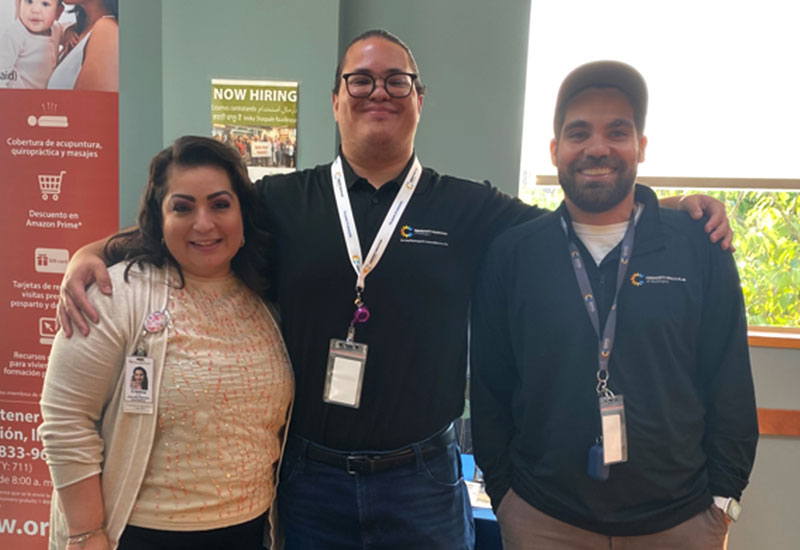
Christina Herrera, Lucas Springstead, and Roel Cubas at HealthPoint Kent.
Expanding obstetrics services to improve access in rural communities |
Beginning construction of a facility offering hygiene services for unhoused people |
Hiring a medical-legal partnership attorney to reduce social barriers |
Eliminating barriers to cervical cancer screening for patients experiencing housing insecurity |
“Being a part of the Equity Learning Collaborative Program with the CHCs has been one of my greatest career experiences at CHPW.”
- Kayla Salazar Poncet, CHPW Manager of Equity Quality Performance
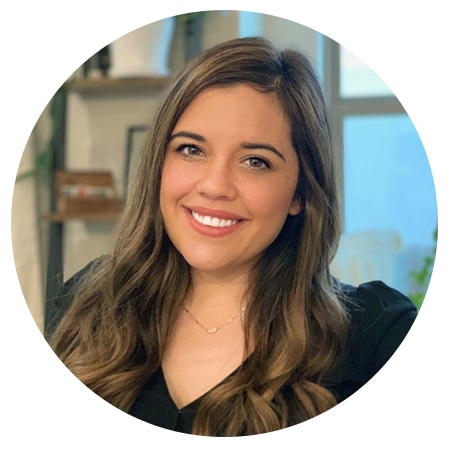
Building on success
“The collaborative nature of this program was really enriching and provided a lot of insight and learning opportunities,” one CHC, Tri-Cities Community Health, reported in a year-end update. “We hope that CHPW will be able to continue to offer similar collaborative learning opportunities in the future.”
“Being a part of the Equity Learning Collaborative Program with the CHCs has been one of my greatest career experiences at CHPW,” said Kayla Salazar Poncet, CHPW Manager of Equity Quality Performance. “I love hearing about the projects we are funding but seeing the health equity commitment across the network is truly what tells me this program is a success.”
Laying a framework for equity
CHPW also achieved Health Equity Accreditation from the National Committee for Quality Assurance (NCQA), the industry quality accreditation organization that sets the standards for evaluating quality for health care organizations. The accreditation is recognized as a seal of approval in the health care industry and attests to an organization’s commitment to equitable health care and health outcomes.
“The accreditation requires us to really look across our organization and ensure that we are delivering on high-quality, equitable health care to our members and where we are not, to address those gaps,” Poncet said.
Identifying opportunities
Other notable accomplishments in 2023:
We released our 2022 Health Disparities Report, looking at our progress across eight key member health measures. We will use the data in the report to identify gaps and opportunities in care delivery, with the overall goal of reducing and eliminating disparate health outcomes.
We continued to partner with the Seattle Indian Health Board (SIHB) to support and advocate for their Traditional Indian Medicine Pilot, which seeks to facilitate reimbursement for medical claims for traditional Indian medicine services. SIHB is a community health center that provides health and human services to its patients, specializing in the care of Native people.
2023 Executive Leadership Team
Leanne Berge, Esq.Chief Executive Officer |
Ma’ata Hardman, BSN, MBA, CCMVice President, Health Services |
Kelli Houston, MBAChief Equity Officer |
Stacy KesselChief Finance and Strategy Officer |
Alan LedermanChief Operating Officer |
Demetria Malloy, MD, MSHSChief Medical Officer/Chief Health Officer(beginning August 2023) |
Paul Sherman, MDChief Medical Officer(retired August 2023) |
Barbara WestlakeSenior Executive Assistant & Board Administrator |
2023 Board of Directors
| Joe VesseyBoard Chair Chief Executive Officer Community Health Center of Snohomish County |
| Rhonda HauffBoard Vice Chair President/Chief Executive Officer Yakima Neighborhood Health Services |
| Aaron WilsonBoard Treasurer Chief Executive Officer CHAS Health |
| Angela GonzalezBoard Secretary Chief Executive Officer Community Health of Central Washington |
| Sheila BerschauerImmediate Past Board Chair Chief Executive Officer Moses Lake Community Health Center |
| Manuel Navarro
Chief Executive Officer Columbia Valley Community Health |
| David Flentge
President/Chief Executive Officer Community Health Care |
| Brandy Taylor
Executive Director (Interim 7/2023 - 8/2023; appointed Executive Director 9/2023) Country Doctor Community Health Centers |
| Jason Owens
Executive Director (1/2023 – 7/2023) Country Doctor Community Health Centers |
| Jim Coffee
Chief Executive Officer Cowlitz Family Health Center |
| Jesús Hernández
Chief Executive Officer Family Health Centers |
| Lisa Yohalem
Chief Executive Officer HealthPoint |
| Kelli Nomura
Chief Executive Officer International Community Health Services |
| Rashad Collins
Chief Executive Officer Neighborcare Health |
| Desiree Sweeney
Chief Executive Officer NEW Health |
| Michael Maxwell, MD
Chief Executive Officer North Olympic Healthcare Network |
| Jennifer Kreidler-Moss, PharmD
Chief Executive Officer Peninsula Community Health Services |
| Regina Bonnevie Rogers, MD
Board Medical Director Representative Chief Medical Officer Peninsula Community Health Services |
| Jeffrey Gibbs, MD
QI Medical Director Sea Mar Community Health Centers |
| Kristy Needham
Chief Executive Officer (Acting) Tri-Cities Community Health |
| Jodi Joyce
Chief Executive Officer Unity Care NW |
| Gaelon Spradley
Chief Executive Officer Valley View Health Center |
| Christy Trotter
Chief Executive Officer Yakima Valley Farm Workers Clinic |
| Carla M. DewBerry Independent Director |
| William Dowling Independent Director |
| Stephen Tarnoff, MD Independent Director |
Financial Strength
As of December 31, 2023
Assets |
|
| Cash & Investments | $599.6M |
| Other Assets | $92.7M |
| Total Assets | $692.3M |
Liabilities/Surplus |
|
| Operating Liabilities | $409.1M |
| Debt | $0.0 |
| Surplus | $283.2M |
| Total Liabilities/Surplus | $692.3M |
Composition of Expenses
As of December 31, 2023

Member Enrollment
As of December 31, 2023
Apple Health
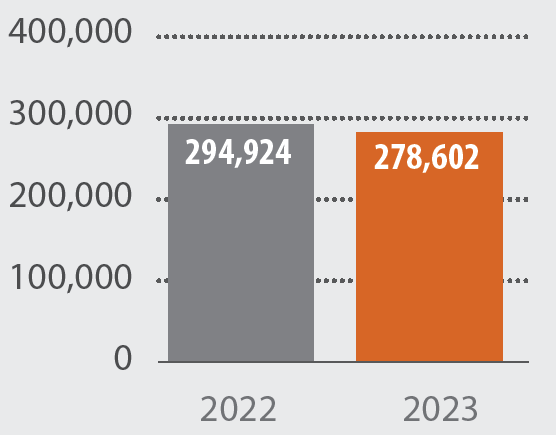
Special Needs Plan
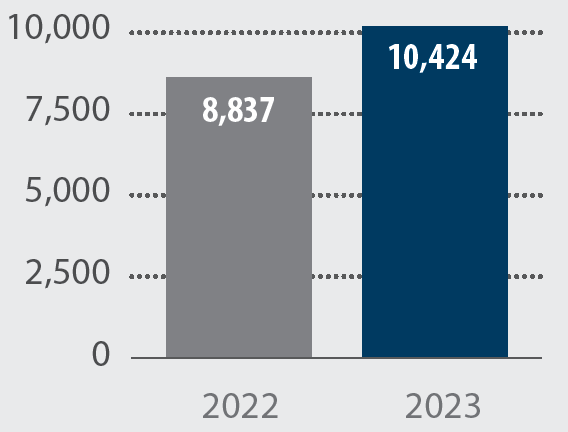
Medicare Advantage
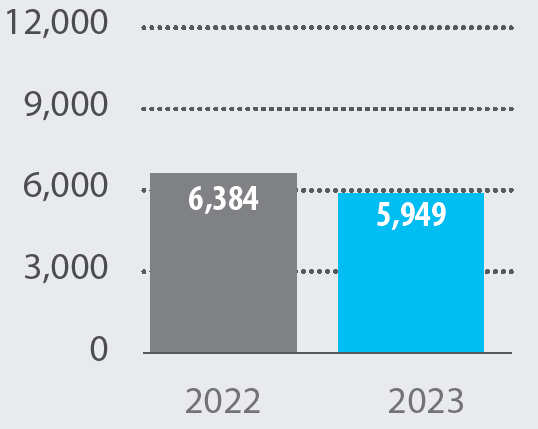
Cascade Select
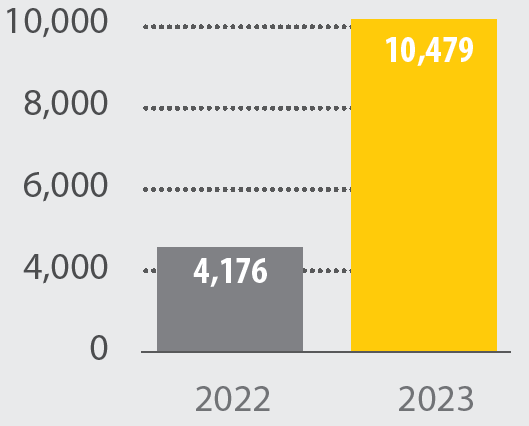
About CHPW
In 1992, a network of Community and Migrant Health Centers in Washington State formally established the Community Health Network of Washington (CHNW) and its subsidiary Community Health Plan of Washington (CHPW), a community-governed, not-for-profit health plan, to provide access to quality care for people - particularly those from marginalized communities – who were not being served by traditional insurance companies.
CHPW serves more than 300,000 members through Medicaid and Medicare Advantage plans, as well as the Health Benefit Exchange’s Individual & Family Plans (Cascade Select), across the state. Its parent, CHNW, provides care to over 1 million individuals across Washington through its federally qualified member Community Health Centers.
CHPW works to advance health equity and whole-person health, connecting members to various physical, behavioral, and social support services to address the social determinants of health (SDOH).* CHPW proudly reinvests surplus revenue back into the Community Health Centers and community organizations to help support critical safety net health care services.
The Power of Community
We are driven to serve our local Washington communities and bring together people and resources to help our members live their healthiest lives. True to the vision of our founding Community Health Centers (CHCs), who still govern us today, we convene andcollaborate with all partners – our CHCs, affiliate providers, community-based organizations, government stakeholders, industry partners, and our members themselves – to support the whole health and well-being of our members.
We build trusting and inclusive relationships to promote equitable and accessible health care for all. Working together, we provide each member comprehensive support for their medical and behavioral health, as well as social needs as fundamental as housing or groceries. Our members are never on their own. They are never alone. We are a mighty and unified safety net, with them every step of the way on the path to their best health. That’s the power of community.
*Social determinants of health, as defined by the Centers for Disease Control and Prevention, “are conditions in which people are born, grow, work, live, and age, and the wider set of forces and systems shaping the conditions of daily life.” To learn more about this, visit the CDC’s website.
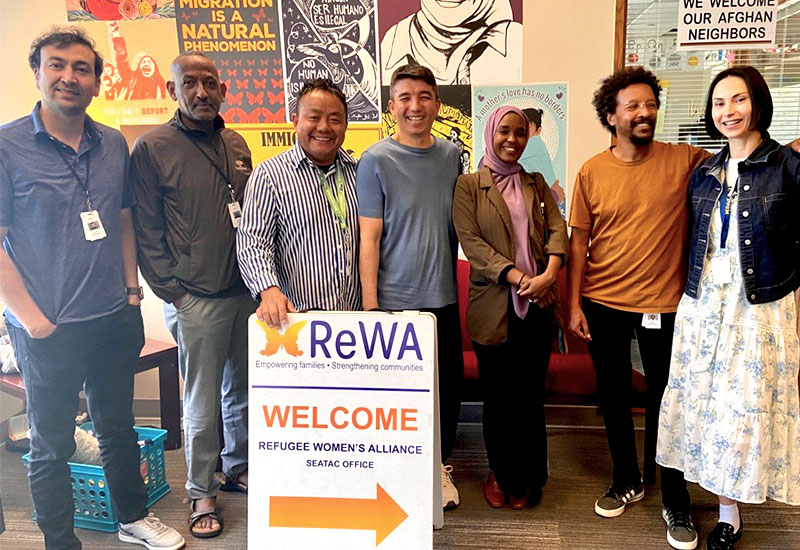
➤Ismahan Ali at Refugee Women’s Alliance.
Tashau Asefaw with Kelli Houston attending SDOH Annual Meeting ➤
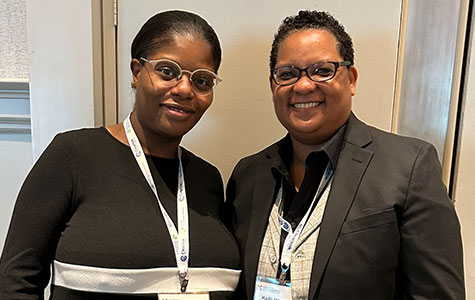
Land Acknowledgment
As we bring you this Annual Report, we respectfully acknowledge that, wherever we are, we are on traditional territories of many Indigenous Tribes.
Our daily lives take place on the lands of Indigenous people. They cared for this land for thousands of years before it was stolen from them. Yet, Indigenous people survive and thrive today and are a model of courage, resilience, and community.
We recognize that CHPW’s headquarters in Seattle is on the traditional lands of the Coast Salish People, specifically the Duwamish People, who are the original stewards of the land, past and present.
We further acknowledge that the treaties signed by Tribal leaders under duress almost 200 years ago include the promise of health care. Therefore, CHPW’s work is not only a service, but a responsibility.
We pledge to support our American Indians and Alaska Native neighbors as we work together for healthier communities.
May this acknowledgment also demonstrate CHPW’s commitment to dismantling ongoing legacies of oppression and inequities and maintaining a diverse and inclusive environment with respect, understanding, and appreciation of all.
